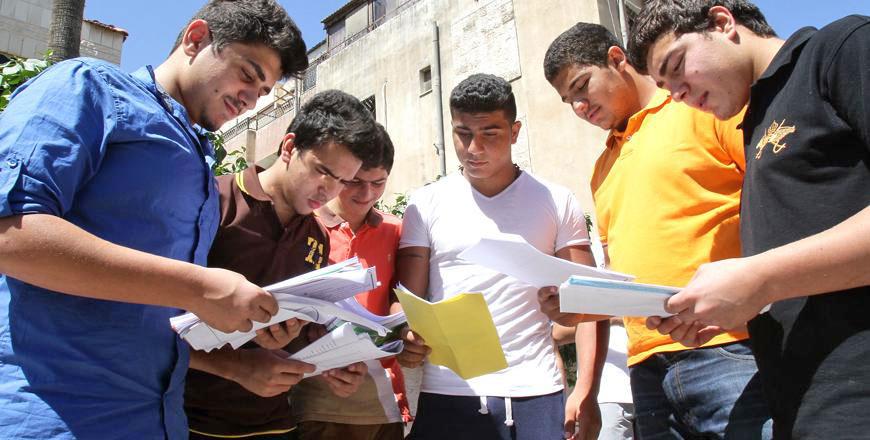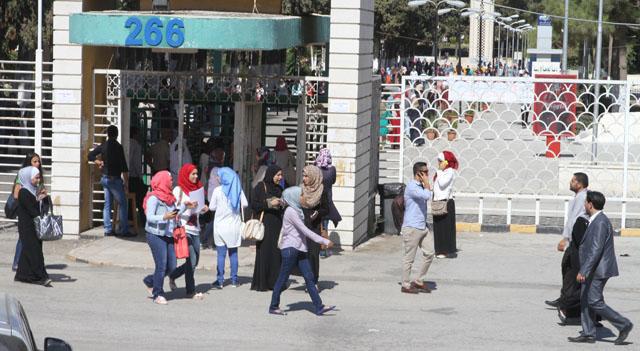You are here
Thabahtoona criticises tawjihi reforms as ‘fragmented’, ‘uncomprehensive’
By Ana V. Ibáñez Prieto - Apr 23,2018 - Last updated at Apr 23,2018
AMMAN — “The Ministry of Education seems to be working hard to abolish Tawjihi [General Secondary Education Certificate Examination] in order to adopt the direct university admission system,” the National Campaign for Defending Students' Rights (Thabahtoona) claimed in a statement issued on Sunday.
Despite several attempts by The Jordan Times, the Education Ministry was available for a comment on Thabahtoona’s allegations.
The statement came following a meeting, organised by Thabahtoona in cooperation with a committee of teachers in the scientific branch, where academic and educational experts discussed the repercussions of the Ministry of Education’s decisions on the Tawjihi reform.
Participants in the meeting questioned the reasons why the ministry approved the new examination system while forecasting further modifications in the following academic year, and criticising the “fragmentation” and “lack of comprehensiveness” in the decision.
In addition, several experts referred to the outputs of the Educational Conference celebrated back in 2015, stating that their adoption would “contribute to the decline of the educational process and the privatisation of public universities with the abolition of the Tawjihi examination as a criterion for admission".
The statement issued by Thabahtoona attributed the latest directions issued by the ministry with the recommendations of the World Bank in its reports on the status of education in Jordan, stating that “all recent actions taken by the Ministry of Education are in the service of the World Bank and the International Monetary Fund in terms of reducing the public education budget".
Thabahtoona stressed that the ministry proceeded to the implementation of its decisions without evidence based on scientific studies that supports them, noting that “several academics were surprised to see the ministry developing an examination system based on superficial knowledge of international experiences, let alone the fact that the system established by the Ministry of Education has nothing to do with international regulations and programmes".
Considering the issues discussed at the meeting, Thabahtoona called for “a reform of the educational system starting from the basic stages, developing a classroom environment capable of advancing the educational process while improving teachers' capacities and curricula on the basis of a national educational system rather than Western colonial dictates".
"The prior can only be achieved by revising the budget allocated to the Ministry of Education,” the statement concluded, stressing the need for “real control over the disbursements".
Related Articles
AMMAN — The National Campaign for Defending Students’ Rights (Thabahtoona) on Monday called for the revision of educational policies concern
AMMAN — The National Campaign for Defending Students’ Rights (Thabahtoona) is accusing universities of advertising lower fees on the unified
AMMAN – While education experts support the Education Ministry's suggested changes to the General Secondary Education Certificate Examinatio













